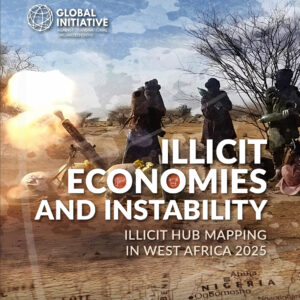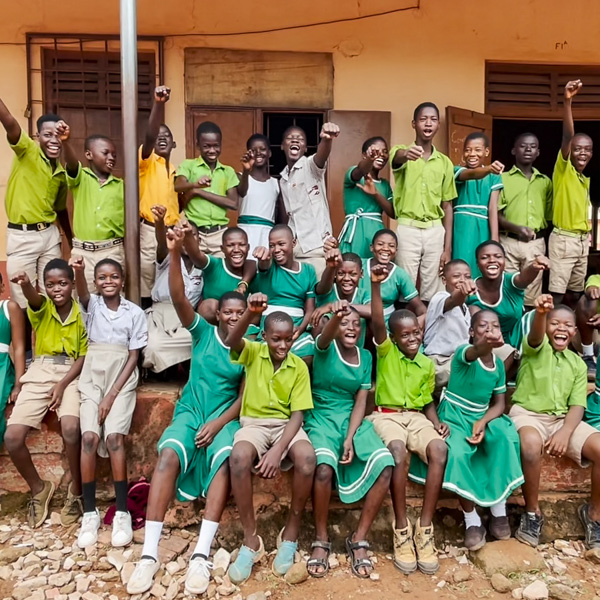Behind the Hashtag: BBC Investigation Reveals Deaths Behind #DubaiPortaPotty
This week, BBC News Africa and Thread Studios released a powerful investigation by journalist Runako Celina that exposes a human trafficking network operating between Uganda and Dubai. The documentary, Death in Dubai: #DubaiPortaPotty reveals the tragic stories of Monic Kurunji and Kayla Bunji, two young Ugandan women who died in suspicious circumstances after falling from Dubai high-rises.
The Victims: Monic Kurunji and Kayla Bunji
Monic Kurunji was 23 years old when she left her rural Ugandan village in late 2021, promised work in a Dubai supermarket. Four months later, she was dead – having fallen from the 20th floor of a building in Dubai’s Al Barsha district. Her family was told it was suicide.
Kayla Bunji, 21, had died under similar circumstances the year before – also falling from a high-rise in the same Dubai neighbourhood. Both women had been living in Al Barsha and were connected to the same network of people.
Add Your Heading Text Here
The documentary systematically dismantles the narrative that these were suicides. Witnesses described Monic fighting with someone on her balcony before she fell. Additionally, laboratory tests verified by the BBC revealed there was no alcohol or drugs in Kayla’s blood, contradicting police claims that substances were involved in her death.
How the Network Operates
Celina’s investigation traced the operation back to two men working in coordination across continents. In Uganda, Umar Bashir, known as “Bash”, trawls social media for young women facing poverty or family pressure. He promises them legitimate jobs in Dubai supermarkets or hotels, then facilitates their travel using questionable documents.
Once the women arrive in Dubai, they encounter Charles Mwesigwa, a former London bus driver who reinvented himself as “Abbey” in the emirates. Survivors describe a man who controlled up to 50 women at a time from various apartments, moving frequently to avoid detection. He took such care to hide his identity that even on social media, he would turn away from cameras or obscure his face.

Exploiting State Systems
The investigation reveals how traffickers exploit weaknesses in official identity systems to facilitate their operations. Umar Bashir claimed to have access to Uganda’s National ID and Registration Authority, NIRA, which maintains citizen records that should be unavailable to the public. When the BBC’s undercover team provided fake details for a fictional woman named “Nabalime Scovia,” Bashir was able to locate two official identity records matching that name, suggesting unauthorised access to government databases containing personal information of Ugandan citizens.
Even more brazenly, Bashir openly advertised document forgery services on WhatsApp, posting photos of stacks of Ugandan passports with messages offering “passports, national IDs, birth certificates” to anyone who contacted him. This combination of apparent insider access to legitimate systems and outright document fraud demonstrates the sophisticated methods traffickers use to create convincing paperwork for their victims. Such access – whether through corruption, data breaches, or compromised officials – enables networks to operate with a veneer of legitimacy that makes detection and prosecution more difficult.
The Debt Trap
The women quickly discover the supermarket jobs don’t exist. Instead, they’re told they owe Abbey between 10-20 million Ugandan shillings ($2,800-$5,600 USD) for flights, visas, accommodation and “training.” The debt is impossible to repay through legitimate work, and that’s the point. Housed in cramped conditions with dozens of other women, they’re forced into bars and hotels where clients expect extreme sexual acts. Every payment goes toward a debt that never decreases.
Those who resist face violence or threats against their families back home. As one former associate and possibly the bravest collaborator in the investigation, Troy, told the BBC: “If the girls said ‘I’m not ready to provide sex’, he would keep them inside the room until they agreed. Their only option was to be with Abbey.”
When contacted by the BBC, Mwesigwa dismissed all allegations as false, claiming he was simply “a party person who invites big spenders” and that police had already investigated both deaths. His response rang hollow against hours of survivor testimony and undercover footage showing him offering women for degrading acts that directly mirror the viral “porta potty” content.
The Online Myth vs Reality
The documentary also addresses the viral “#DubaiPortaPotty” videos that were falsely attributed to Monic after her death. Celina proves these videos were filmed in Russia months before Monic’s death and show a different woman entirely. However, the online narrative overshadowed the real investigation into trafficking networks, turning Monic into a symbol of victim-blaming rather than focusing on the criminals who exploited her.
Monic’s story was reduced to a meme online, despite being a young woman with dreams and a family who loved her. The hashtag #DubaiPortaPotty has amassed over 450 million views on TikTok, demonstrating how misinformation can overshadow genuine investigation into criminal networks. (You can read more about porta-potty culture in Ghana in our blog post here.)

Systemic Failures
The investigation highlights multiple institutional failures:
- Dubai police dismissed both cases as suicides without thorough investigation
- Ugandan authorities failed to track or investigate recruitment networks operating openly on social media
- Diplomatic channels provided no meaningful support to families seeking justice
- Social media platforms allowed recruitment to continue unchecked
When family members tried to report the crimes or seek justice, they were told “this is not Uganda” and that the perpetrators were too well-connected to face consequences.

The Broader Context
Monic and Kayla’s stories reflect a larger crisis affecting young African women. Uganda’s youth unemployment and the glamorization of Gulf state migration on social media create perfect conditions for traffickers. Anti-trafficking activist Mwiza Mariam, who has rescued over 700 people, reports receiving 5-10 new cases daily.
The documentary confirms that this network continues operating. Three years after Monic’s death, Abbey was filmed discussing new “fresh entries” from Uganda and boasting about his connections that protect him from law enforcement.
The Need for Prevention
While the #DubaiPortaPotty documentary exposes criminal networks that must face justice, it also underscores why prevention education is critical. Both Monic and Kayla trusted their traffickers completely and had no framework for recognising manipulation or coercion. This knowledge gap is what organisations like the Hope Education Project address through community-based prevention programming.
The survivors interviewed describe how they initially viewed their exploitation as “bad luck” rather than recognizing it as trafficking – highlighting how awareness-building can be life-saving.
The Reality of Systemic Failure
Based on patterns observed in similar cases we uncovered through our sister campaign Stop Trafficking Africa, the prospects for justice remain bleak. Dubai authorities are unlikely to reopen these cases – the UAE’s track record on trafficking prosecutions suggests that protecting the emirate’s reputation takes precedence over victim justice. Without legislative changes, Uganda will not meaningfully investigate recruitment networks that operate openly within its borders, despite having the legal framework to do so.

The 2024 US State Department Trafficking in Persons Report identifies Uganda’s key challenges in combating trafficking. Despite legal frameworks, the report notes persistent implementation gaps:
Priority recommendations include:
- Significantly increasing availability of shelter and specialized services for trafficking victims
- Enacting victim-witness assistance legislation to protect those participating in criminal proceedings
- Strengthening police-prosecutor partnerships for more effective case completion
- Increasing efforts to investigate and prosecute traffickers, including complicit officials
- Enhancing protection for Ugandan trafficking victims abroad through better embassy training
- Implementing systematic victim identification protocols for vulnerable populations
- Continuing strong oversight of labor recruitment companies and eliminating recruitment fees
- Approving establishment of the Anti-Trafficking Department in the Ugandan Police Force
The gap between policy and practice remains vast. Tech platforms similarly show little inclination to meaningfully address trafficking recruitment on their services without regulatory pressure.
However, the documentary’s courage in exposing these networks creates momentum for change. Monic Kurunji and Kayla Bunji deserved protection, justice, and life. Their families deserve answers. And the women currently trapped in these networks deserve rescue. The investigation highlighted the same challenges facing victims seeking justice that our sister campaign Stop Trafficking Africa has encountered, most recently in the Christy Gold case. There is no justice for African victims of human trafficking in the UAE, where human rights and dignity are sacrificed to maintain the appearance of a sanitised paradise. Behind the glossy facade lies a dark and deadly reality of exploitation supported by the kafala system, lax visa requirements and institutional denial. The courage of survivors who spoke out, despite personal risk, and the dedication of journalists like Runako Celina in exposing these networks, create possibilities for change.
The BBC documentary produced by Thread Studios is available on iPlayer and YouTube. The Hope Education Project extends solidarity to the families of Monic Kurunji and Kayla Bunji and all survivors of trafficking who continue seeking justice in the United Arab Emirates.
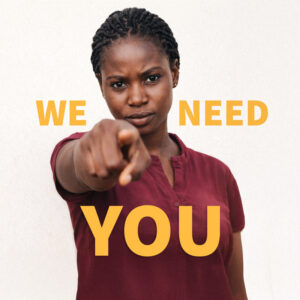
Volunteer with Hope Education Project UK | Two Roles Open
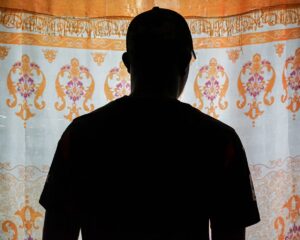
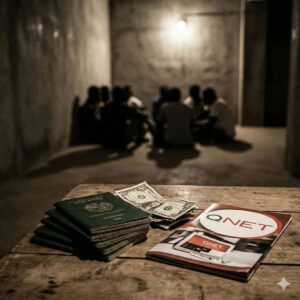
QNet in Ghana: BBC Investigation, EOCO Raids, and Avoiding the Scam
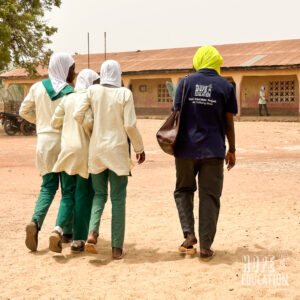
Hope Education Project UK Is now a registered charity
